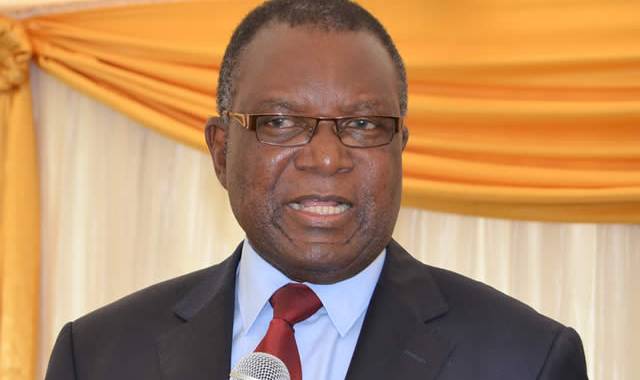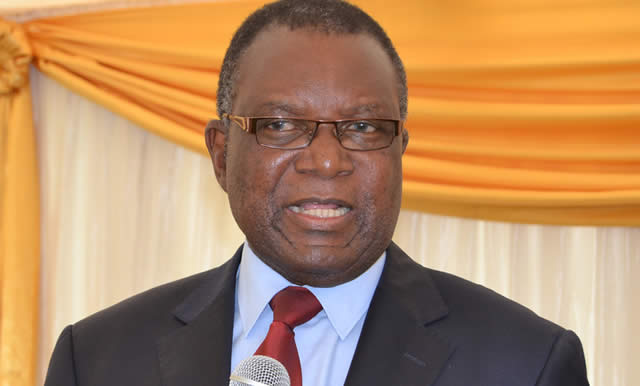EDITORIAL COMMENT: Banning road haulage trucks not the solution

Haulage trucks might be on the highway to oblivion if two separate lobbies impacting on their operations succeed.
Transport and Infrastructural Development Minister, Dr Joram Gumbo, speaking at the commissioning of 31 National Railways of Zimbabwe wagons in Bulawayo on Friday said the Government might come up with an instrument mandating bulk cargo to be moved by train only. The proposal, he said, was motivated by the need to help the NRZ recover as more business would be channelled to rail. It was also motivated by the need to minimise the deterioration of the national road network that is moving too much heavy loads. The proposal is also intended to reduce congestion and road accidents.
His ministry, he said, is working on a transportation master plan to assist in the creation of a transportation system that balances the business for air, rail, road and waterways.
“While this can be achieved in the long run, we are immediately faced with the challenge of attracting sound partners or financiers to the NRZ project, hence the subject of ring-fencing of bulk cargo to NRZ. The ring-fencing of cargo should under ordinary circumstances be enforced through moral suasion. However, at times, it may be necessary to legislate,” he said.
This was not the first time that Dr Gumbo has floated this idea. In January he spoke about it. He reiterated that position in July at the Mine Entra infrastructure conference, saying the Government was planning to come up with a statutory instrument outlawing transportation of bulk cargo by road but rail.
Yesterday at a stakeholders meeting in Victoria Falls, a senior official at the National Oil Infrastructure Company of Zimbabwe (Noic) highlighted a basically similar proposal. The difference is that if theirs is adopted, it would see truckers being banned from transporting fuel from Mozambique. Noic chief executive officer Mr Wilfred Matukeni is quoted elsewhere in this issue saying transporting fuel by road poses questions on the integrity of the commodity. He highlighted cases where some trucking firms have not only mixed the commodity with other oils but also used the system to smuggle it. Instead of road, he said, fuel must be moved from Beira in Mozambique to Mutare through the Feruka Oil Pipeline.
Discussions between the owners of the line, PetroZim Line Ltd, and Campanhia do Pipeline Mocambique-Zimbabwe Limitada to expand the pipeline are in progress, he said.
“We want to limit the overuse of roads and also make sure that consumers get quality products, which are not illegally blended. This will also control prices of fuel,” he said.
The net effect of these proposals would be to effectively curtail the haulage trucking business in the country. They will not be able to bring fuel into the country and on top of that, whatever bulk cargo there is in the country would have to move on the train.
The cost of moving basically all our bulk cargo by road is huge — road damage, pollution, congestion and higher landing costs.
However, is banning haulage trucks a correct decision to take?
We don’t think so.
The trucking business is huge in our country and it grew huger in recent years, taking advantage of the failure of the NRZ to move freight effectively. It derives a lot of business from the hefty cargo that should be ordinarily moved by trains — oil, coal, maize, chrome ore and so on. And bulk cargo should logically be more expensive to transport, which means more money to the haulage business than they earn when moving lighter stuff. It creates employment and contributes immensely to economic development.
Therefore, hitting them at home and abroad if the Ministry of Transport and Noic’s proposals succeed would be doing a lot to throttle a vibrant industry.
Noic and its partners only need to expand the Beira-Feruka oil pipeline and present it to the market for their clients to decide whether to use it or not. Chances are however high that oil businesses would opt for the line given the advantages it offers, obviating the need for an official ban on haulage trucks.
At the same time we encourage the ministry to shun a blanket ban. We encourage them to carefully pick certain cargo to move to the train and leave some to open competition. On the NRZ we are not totally opposed to the ring-fencing that Dr Gumbo highlights as the parastatal requires some form of “unfair advantage” for it to get back on its feet.
We foresee legal impediments if the government totally bans the importation of fuel by road and the movement of all bulk freight on local routes by trucks. Such squabbling would be bad for the smooth running of the economy and the government’s quest to open the market up for business.









Comments